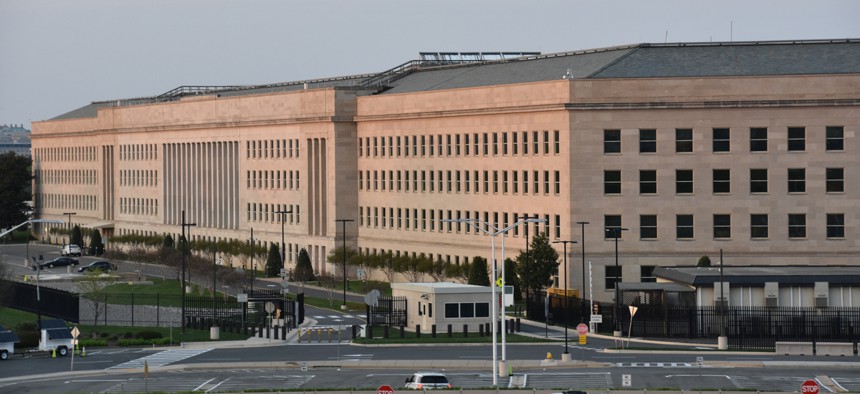Pentagon Backs Off Controversial Changes to Contractor Pay Schedule
Lawmakers and industry officials had questioned a plan to pay companies less money up front.
Faced with opposition from industry and the chairmen of the Armed Services Committee, the Defense Department on Monday rescinded a plan announced in August to pay contractors less money during the early phases of a contract.
As reported first by Inside Defense and then the Washington Post, both Sens. James Inhofe, R-Okla., and Rep. Mac Thornberry, R-Texas, on Sept. 24 had written to Deputy Defense Secretary Pat Shanahan warning that the “performance” pay plan would harm the military’s technological advancement. They called it “fundamentally flawed” and harmful to national security objectives, according to news reports. (Both committees told Government Executive the letters were not being released.)
On Monday, Shanahan released a statement saying, “The Department of Defense is fully committed to reform, a pillar of the National Defense Strategy. With a reform mindset, the department is changing acquisition rules and regulations. Recently, proposed amendments to the Defense Federal Acquisition Regulation Supplement were prematurely released, absent full coordination.
"As a result, the department will rescind the proposed amendments” and work with stakeholders on a revised ruling.
The plan was unveiled on Aug. 24 in a Federal Register notice proposing to implement a section of the fiscal 2017 National Defense Authorization Act creating “performance-based payments, and to streamline the performance-based payment process.”
The proposed amendment to the Defense Federal Acquisition Regulation Supplement to revise progress payments would increase the department’s “business effectiveness and efficiency as well as to provide an opportunity for both small and other than small entities to qualify for increased customary progress payment rates and maximum performance-based payment rates based on whether the offeror/contractor has met certain performance criteria.”
The Pentagon also justified the change by saying it would “eliminate the unintended consequences of not updating its contract financing policies (which, in turn will save hundreds of millions of dollars for the taxpayers), will improve contractor performance, and will distinguish and meaningfully recognize high performing companies and divisions of companies.” It requested comments by Oct. 23.
At a Sept. 14 public meeting at the department, the Professional Services Council, which represents 400 contractors, said the plan “creates inconsistencies” within the NDAA. “In addition, criteria in the proposed rule to potentially increase the percentage rate of progress payments introduces huge variables for both government and industry, introduces components that are unrelated to contractor performance, and includes subjective criteria for government decision-making over which a contractor has little control,” said the group’s counsel and executive vice president, Alan Chvotkin.
Similar objections came from Wesley Hallman, senior vice president of policy at the National Defense Industry Association.
“This rule discourages industry investment in innovation, is duplicative and unnecessarily increases bureaucracy and oversight,” he said in a presentation. It also “disrupts cashflow and drives prices higher, distorts competition, punishes contractors who accept high risk and challenging performance requirements, [and] contradicts congressional intent.”
Image via Ritu Manoj Jethani/Shutterstock.com.




